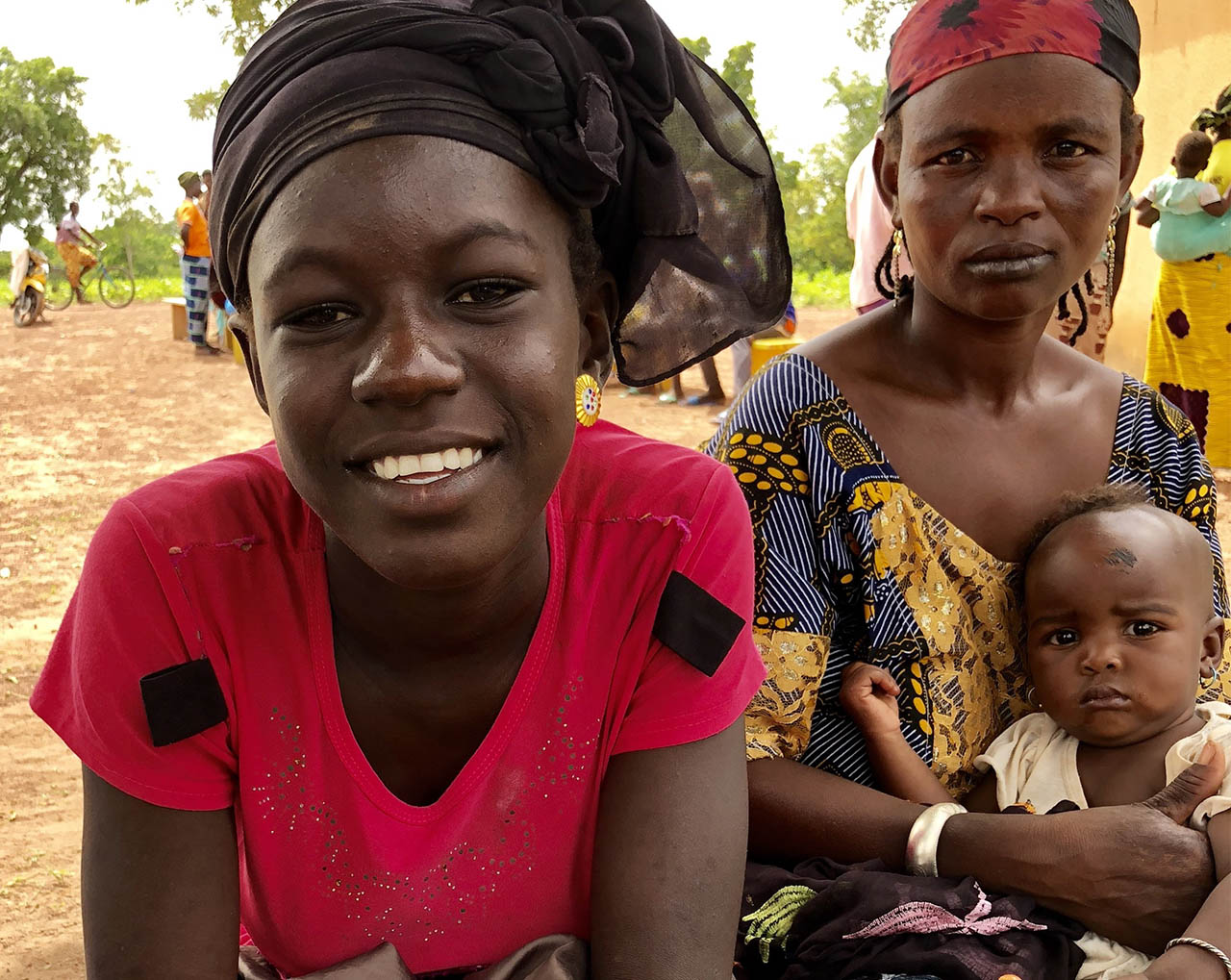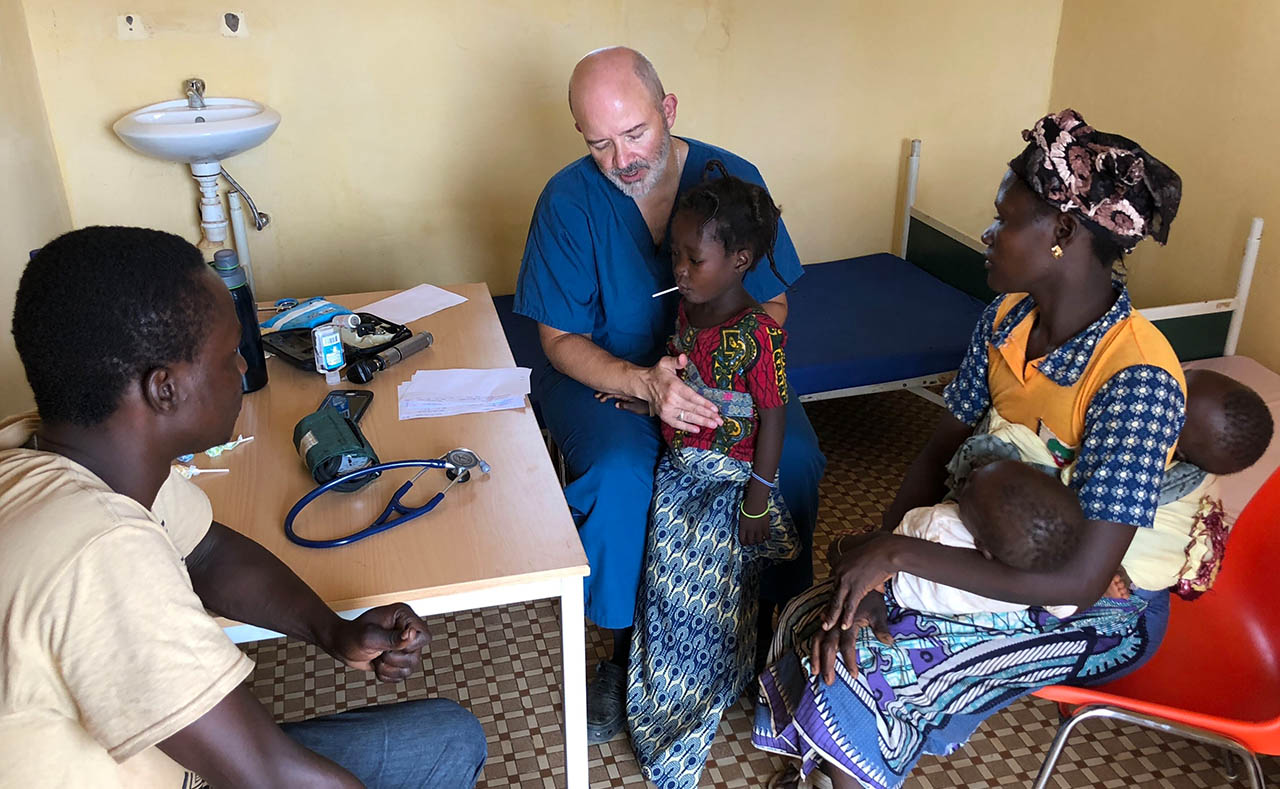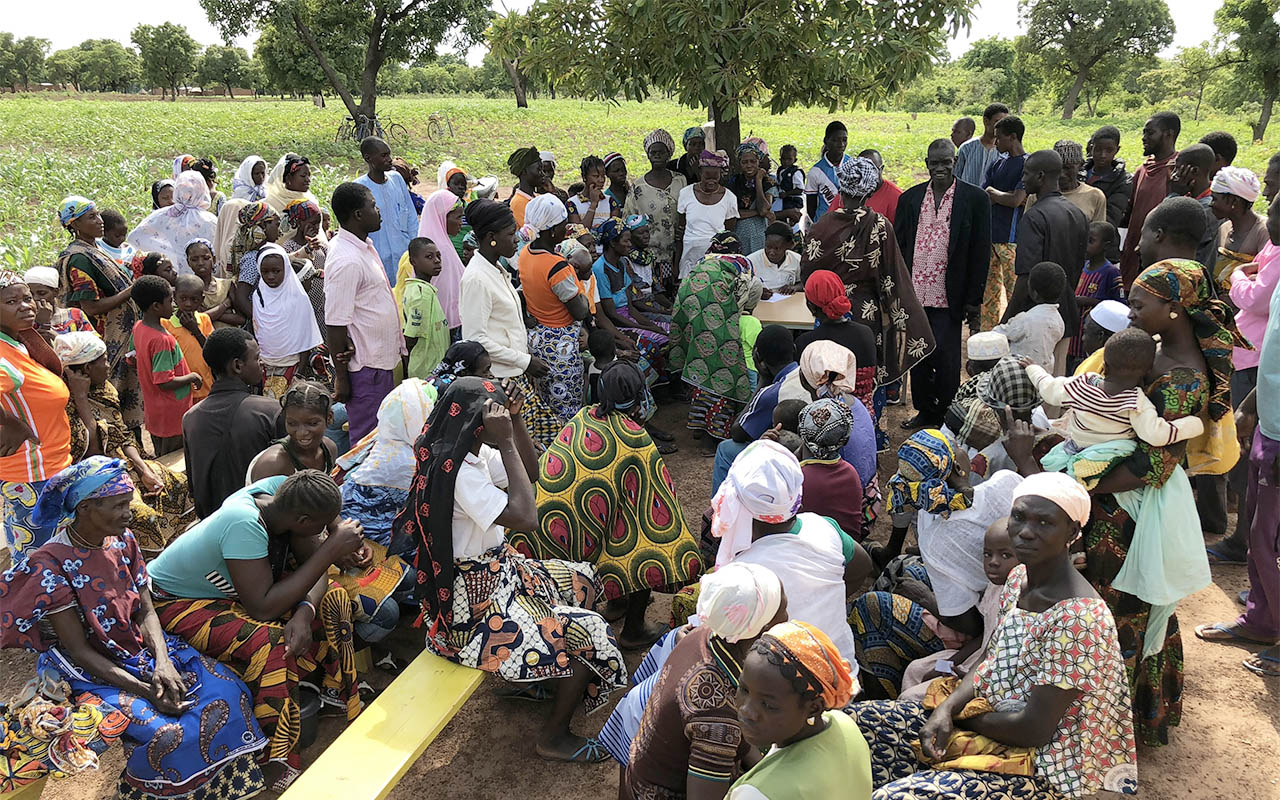 Kristen Thiessen came to missions ten years ago. She had majored in engineering but wanted to do something else. One Sunday, she attended a church service where Ron Cline, then president of HCJB, was the guest pastor. His sermon and an announcement of an upcoming trip to Ghana moved her to quit her job and go on the trip with her supportive husband, Mike.
Kristen Thiessen came to missions ten years ago. She had majored in engineering but wanted to do something else. One Sunday, she attended a church service where Ron Cline, then president of HCJB, was the guest pastor. His sermon and an announcement of an upcoming trip to Ghana moved her to quit her job and go on the trip with her supportive husband, Mike.
A certified EMT, Kristen had considered becoming a firefighter but had no interest in medicine—not until Ghana. She was touched by the vulnerability of the people who came to her for help. When she returned to the US, she enrolled in a nursing program. During the trip, Kristen met a fellow nurse named Sheila Leech, who invited her back to missions. Kristen returned to Ghana for the 2017 summer internship, and then this year jumped at the chance to go to Burkina Faso.
Although Reach Beyond has sent several teams to other areas of Burkina, this time the trip would be heading to a new area, in an effort to reach out to the Fulani people. According to the Joshua Project, the Fulani are one of the largest clusters of unreached people groups in West Africa. Over 41 million Fulani are dispersed across the entire Sahel from the west coast of Africa to the east coast. They are predominantly Muslim and largely untouched by the gospel.
Reach Beyond’s regional director for Sub-Saharan Africa, Lee Sonius, and Global Hands Coordinator Sheila Leech led the trip into Burkina. Their goal was to learn more about the culture and needs of the Fulani, as well as ways to support a local Fulani pastor’s ministry through health care for the Fulani people. The rest of the team consisted of an Ecuadorian family doctor who graduated from Reach Beyond’s residency program, a nurse, a pharmacy technician, a videographer, a physician, his wife—who is a microbiologist—and their two children.
The medical team flew into the capital, Ouagadougou, and drove for seven hours to the town of Bobo-Dioulasso. Upon arrival, they learned that the permits needed to see patients were not yet ready. They also were not able to get in touch with their local Fulani contact. The team met with officials and prayed that God would work through the final details to let them start working. They passed the time listening to worship music and reading verses about God’s plan.
“That was our theme,” Kristen says. “It’s easy to go into a trip like this with the mindset that we’re here and ready to go. But this was a reminder that God was in control.”
 Finally, the officials authorized the team to work under the supervision of a local doctor. The delay had been relatively short as apparently the paperwork could have taken three weeks. During this time, a local pastor proved invaluable. He pastors a church of over 900 people in Bobo-Dioulasso. He and his wife also run DORCAS Ministries, a collection of ministries to help young women from villages advance and gain life skills. The pastor introduced the team to some translators, including his son who helped coordinate the groups’ activities and travel.
Finally, the officials authorized the team to work under the supervision of a local doctor. The delay had been relatively short as apparently the paperwork could have taken three weeks. During this time, a local pastor proved invaluable. He pastors a church of over 900 people in Bobo-Dioulasso. He and his wife also run DORCAS Ministries, a collection of ministries to help young women from villages advance and gain life skills. The pastor introduced the team to some translators, including his son who helped coordinate the groups’ activities and travel.
On Friday, the team set out in a van they rented from DORCAS Ministries. They went to a clinic about 30 minutes from Bobo-Dioulasso. A local nurse runs the clinic and attends to the needs of all who come, including some Fulani patients.
The clinic had three rooms: two examination rooms and a waiting room between them. The line formed outside, and the registration table was under a group of trees. The volunteers at registration took down the patient’s names and birthdates, which many patients did not know. One lady said she was 200 years old. The doctors used the examination rooms. The pharmacy and lab were in a gazebo.
Not many people came to the clinic on the first day, but word spread quickly. When the team arrived the next day a line of 60-100 people was waiting. Kristen saw some Fulani men and standing to the side of the clinic while the line formed in front. They wore colorful, ornate outfits. The women wore dresses and head scarves and the men wore traditional muslim prayer caps and robes or tunics with slacks. Most of the non-Fulani spoke Dioula. The Fulani and the Dioula speakers generally stayed apart. The Fulani tended to sit in a cluster and watch; they did not join the line with everyone else.
A couple of Fulani guys who did join the line asked the team to visit their village and see patients there. The team was willing, but the pastor warned the team against going to that region as it might not be safe. So, the medical team decided to stay put, planning to see as many Fulani as they could the next day.
 But the next day the crowd was bigger, and the Fulani still sat off to one side. The pastor suggested alternating the patients, taking 10 Fulani and then 10 Dioula speakers at a time. As always, the sickest patients were triaged to be seen first. The team saw 150 patients that day.
But the next day the crowd was bigger, and the Fulani still sat off to one side. The pastor suggested alternating the patients, taking 10 Fulani and then 10 Dioula speakers at a time. As always, the sickest patients were triaged to be seen first. The team saw 150 patients that day.
Several days into the outreach, the team was somewhat frustrated that they still could not reach the Fulani pastor they had planned to support. They had only one week left to work and had not seen much of the Fulani. They prayed that they would not miss their opportunity. On Monday, they treated patients in the mayor’s village, at his request. They saw another 100 patients. When they returned that night, they found the Fulani pastor at the house waiting for them.
He took them to an area about 40 minutes’ drive west of Bobo-Dioulasso. There was no road to the Fulani villages, so they opened clinic at a church close to the road. They soon received an invitation from the chief of a Fulani village about 3 kilometers away. The village consisted of a circle of clay houses with a well off to the side.
The chief and his family received them warmly. They laid out bamboo mats for their guests to sit on. The team prayed with the chief and his wives and family. He gave them a gift of Guinea fowl eggs. One of the chief’s wives attends the church with her children. When she came to see them at the clinic, the team prayed with her that her husband would come to know the Lord. The team served 400 patients in four days, many of them Fulani people.
Kristen was happy that the team had the opportunity to give out medication in the church as if to say, “Come to the church to be healed.”
“That was probably the first time many of them had come into a church,” Kristen says.
On the other hand, Kristen appreciated that this missions trip was not an overtly evangelistic trip. The goal was always to serve the Fulani in humility and support the local Fulani pastor’s work among them. “You just want to love them and show them kindness,” she says. “It’s cool to be part of an organization that’s doing it right.”
